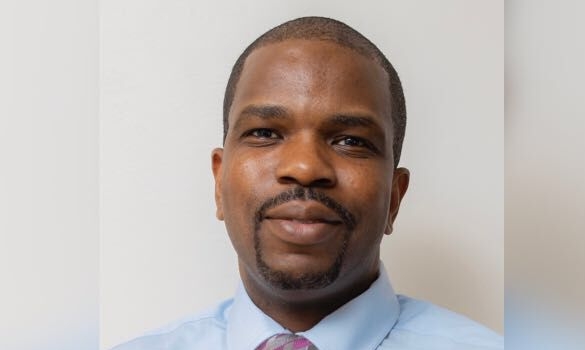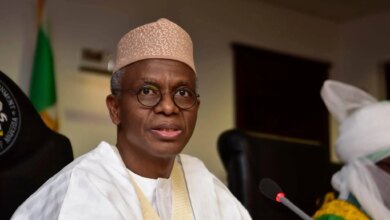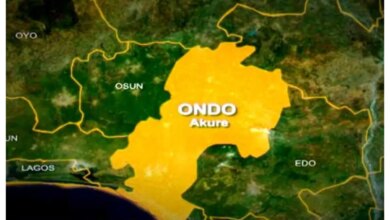Galamsey, Chiefs, and the Fatal Illusion of State Control: Why Ghana must return power to the people


Across the world, the most enduring conflicts are about land, not merely as territory, but as a means of ancestry, identity, and survival. From Gaza to Kashmir, from Crimea to the Falkland Islands, whoever controls land determines the destiny of those who live upon it. Even when disputes are framed in the language of religion, migration, or development, the underlying struggle remains about ownership, access, and control of territory and the resources it holds.
Ghana’s galamsey crisis is part of this same global pattern. It is not simply an environmental problem or a legal infraction; it is a deeper battle over who owns and benefits from the gold beneath ancestral lands. In African tradition, land is held in trust by chiefs for the benefit of the people, to be preserved and passed down through generations. Yet under Ghana’s 1992 Constitution and the Minerals and Mining Act, minerals belong to the state while the surface belongs to stools, clans, and families. This contradiction breeds resentment, distrust, and defiance across mining communities.
In recent months, Ghana has witnessed several consultation meetings involving government officials, civil society organizations, and security agencies seeking solutions to the galamsey menace.
A new task force comprising eminent individuals and state agencies has been established to coordinate efforts. The Environmental Protection Agency’s boss, I have read somewhere, has called for helicopters and firearms. At the same time, the government has deployed so-called blue guards along riverbanks as a form of vigilante force.
Other officials have discussed drones and high-tech monitoring systems as the next frontier in enforcement. However, in a moment of rare honesty, the Minister for Lands and Natural Resources recently stated that bullets and guns cannot solve the galamsey menace, and I agree with him. The problem is not a lack of force or an absence of law.
Ghana already has sufficient regulations in place for mining, land use, and environmental protection to fill entire volumes. The real problem is that we have misdiagnosed the disease. Galamsey is not merely an environmental hazard or an act of lawlessness; it reflects dispossessed ownership and a symptom of alienation. The people whose ancestors lived and died on these lands now watch as individuals from China, corrupt politicians, other political actors, and other foreign companies extract wealth while they remain impoverished. They dig not because they are greedy, but because they are hungry. They mine because that land is their inheritance, and the gold beneath it represents survival. To fail to understand this fundamental truth is to miss the entire point of the crisis.
When you examine Ghana’s intra-chieftaincy disputes, the pattern is strikingly similar. At first glance, these disputes may seem to be about who becomes the next chief, but at their core, they are struggles over who controls land. In the African worldview, land is not a commodity; it is life itself, the source of identity, livelihood, and continuity. Chiefs stand as the custodians of this heritage, serving as the closest link between the people and the land. They live among their subjects, share their struggles, and are bound by communal obligations that the government cannot understand or replicate.
Meanwhile, over the years, the state has systematically stripped chiefs of their authority and power, reducing them to paper tigers in their own domains. The same government that politically emasculated the chieftaincy institution now turns around to use distant bureaucratic machinery to solve a community problem. It is like trying to fix a leaking roof by painting the ceiling; the symptom may look different, but the cause remains untouched. The attempt to fight galamsey without first empowering traditional authorities is an exercise in futility. The chiefs know their people and understand the social and spiritual dimensions of land use. The government, by contrast, is distant, impersonal, and often driven by political and economic interests rather than communal welfare.
The illusion that the central government can manage every inch of Ghana’s mineral wealth is a fatal and egoistic one. It is a colonial inheritance designed for extraction, not development. Across the world, regions that have benefited from natural resource wealth are those where ownership aligns with the people who live on the land. In the United States, landowners in many states retain mineral rights and receive royalties from the extraction of these resources, which can lead to the accumulation of generational wealth.
In Canada, provinces such as Alberta strike a balance between Crown and private ownership, allowing local communities to negotiate directly with companies while the state regulates and taxes production. Ghana has done the opposite, centralizing control for over a century and leaving mining communities destitute. Obuasi has produced gold for more than one hundred years, yet it is no more developed than Ho, which has no gold at all. This is not a failureof enforcement; it is a failure of political design.
The only sustainable solution lies in restoring local authority and legitimacy. Chiefs must be constitutionally empowered to co-govern land and mineral resources. Chiefs must not play a subsidiary role with any governmental or non-governmental body in the fight against galamsey on their native lands. It amounts to an utter vote of no confidence and disrespect. Chiefs must be left solely at the vanguard of fighting against galamsey, using their own forms of Afrocentric approaches to resource governance. The Council of State, in its current form, is just an advisory body with no concrete mandate.
It should be transformed into a Second Chamber of Parliament composed of rightfully enstooled chiefs with oversight powers in land, environment, and resource governance. I believe that Mr. Alan John Kyeremanten has also, in the past, called for this. In this way, elected chiefs would carry some clear mandate, a high level of respect, and authority to act in a modern system that has largely relegated them. Chiefs must be allowed to partner directly with responsible companies to ensure that mining benefits local communities while protecting the environment.
The government must withdraw completely from mineral ownership. Its role should be limited to regulation, taxation, and oversight, not operation or competition. This is the only way to align policy with justice, history, and social reality.
Let me re-echo this in the hope that those in charge will hear. No drone, no gun, and no task force can end galamsey when the people who live on the land are excluded from decisions about it. The miners are not the enemy; they are the product of a system that has failed to recognize their right to share in their own inheritance —a system that has been unable to provide them with the fundamental necessities of life.
Until Ghana restores dignity and power to the chieftaincy institution, our rivers will continue to turn brown, our forests will continue to disappear, and our young men and women will continue to dig, because, at the heart of it all, they are fighting to survive. It is time to return power to the people through their chiefs, so that Ghanaians can truly reclaim their land, their resources, and their future.
About the Author:
Manaseh Mawufemor Mintah, PhD, is an afrocentric environmental scholar and legal professional whose research and advocacy focus on mining governance, sustainability, and traditional authority in Africa.
He holds a PhD in Environmental Studies from Antioch University New England, a Juris Doctor with specialization in Environmental Law from the Massachusetts School of Law, a Master’s in Sustainable International Development from Brandeis University, a Bachelor of Arts in African Studies from the Universisty of Cape Coast, and is currently pursuing an LLM in International Minerals and Energy Policy at the University of Dundee.
DISCLAIMER: The Views, Comments, Opinions, Contributions and Statements made by Readers and Contributors on this platform do not necessarily represent the views or policy of Multimedia Group Limited.
DISCLAIMER: The Views, Comments, Opinions, Contributions and Statements made by Readers and Contributors on this platform do not necessarily represent the views or policy of Multimedia Group Limited.
Source link





